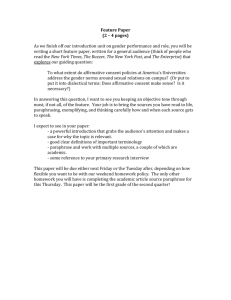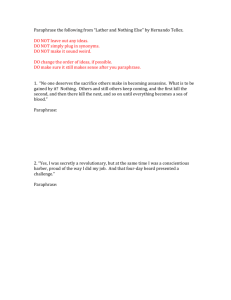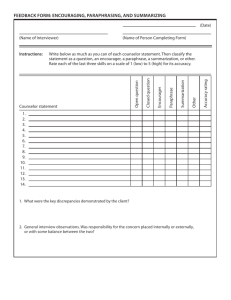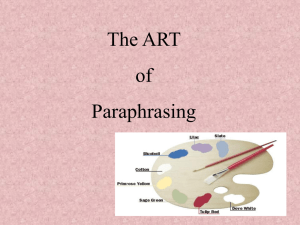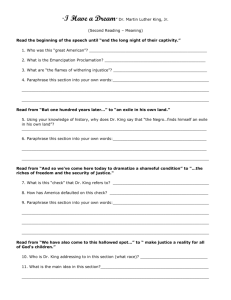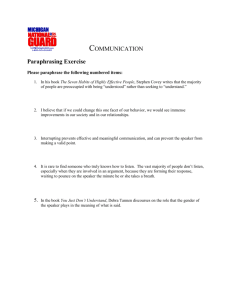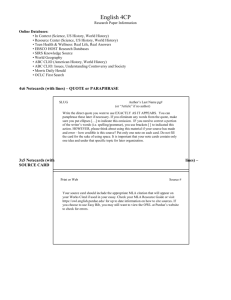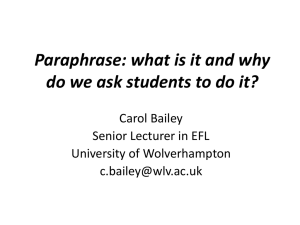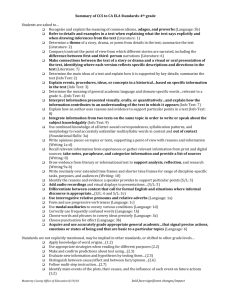Paraphrasing (GL pp
advertisement
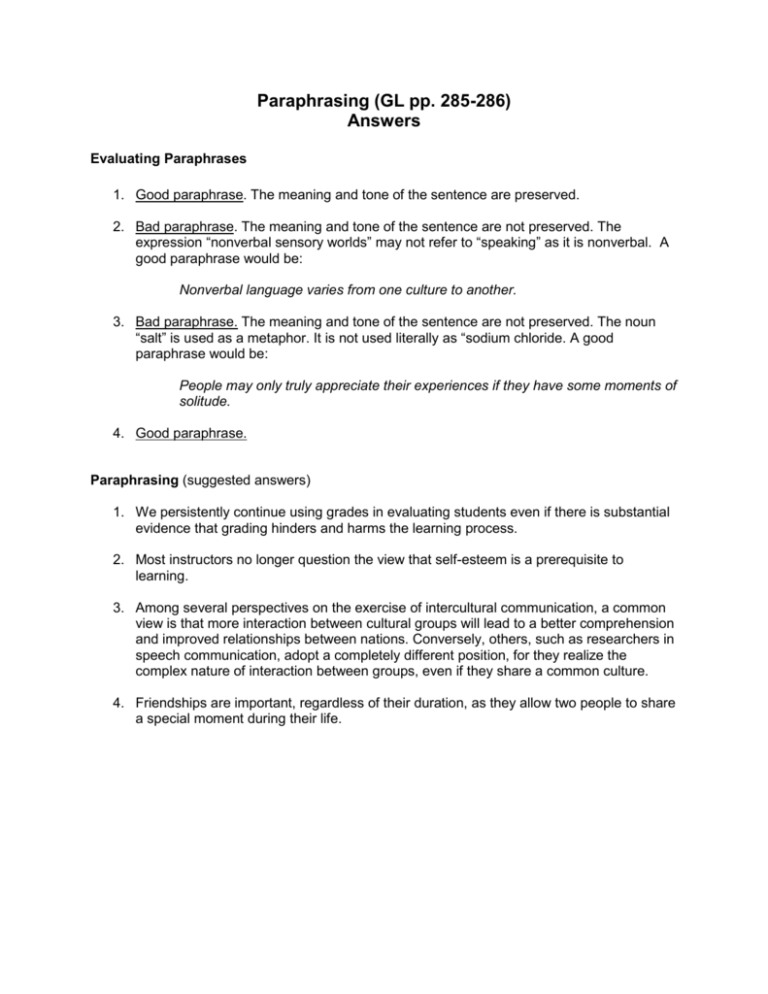
Paraphrasing (GL pp. 285-286) Answers Evaluating Paraphrases 1. Good paraphrase. The meaning and tone of the sentence are preserved. 2. Bad paraphrase. The meaning and tone of the sentence are not preserved. The expression “nonverbal sensory worlds” may not refer to “speaking” as it is nonverbal. A good paraphrase would be: Nonverbal language varies from one culture to another. 3. Bad paraphrase. The meaning and tone of the sentence are not preserved. The noun “salt” is used as a metaphor. It is not used literally as “sodium chloride. A good paraphrase would be: People may only truly appreciate their experiences if they have some moments of solitude. 4. Good paraphrase. Paraphrasing (suggested answers) 1. We persistently continue using grades in evaluating students even if there is substantial evidence that grading hinders and harms the learning process. 2. Most instructors no longer question the view that self-esteem is a prerequisite to learning. 3. Among several perspectives on the exercise of intercultural communication, a common view is that more interaction between cultural groups will lead to a better comprehension and improved relationships between nations. Conversely, others, such as researchers in speech communication, adopt a completely different position, for they realize the complex nature of interaction between groups, even if they share a common culture. 4. Friendships are important, regardless of their duration, as they allow two people to share a special moment during their life.
